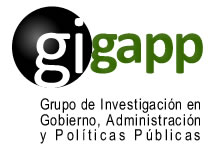Open Government, Public Services 2.0 and Digital Citizenship: Notes for a new agenda for the modernization of public management in Ibero-America
Abstract
Recently, different governments around the world have begun a progressive process to promote and carry out strategies linked to the concept of "Open Government", whose principles are: a) transparency and openness; b) participation; and c) collaboration (Obama, 2009). In this context, the concept of Public Services 2.0 has been coined as a new interactive form of creating public value and moving towards a new type of citizen collaboration and open innovation through the systematic integration of actors in the process of governing and administering public services and public affairs (Hilgers and Piller, 2011; Bommert, 2010; Nambisan, 2008). The work analyzes the key concepts that underlie the application of Web 2.0 tools and social networks in a transformative vision of the State and public services, and the possibility of configuring a specific agenda oriented to the modernization of public management in Ibero-America in response to the various diagnoses that have surfaced in recent times on these issues (CLAD, 2010, Citizenship 2.0, 2011, WEF, 2011, OECD, 2011, and The Economist, 2011, among others) and based on: peer production and the richness of the networks (Benkler, 2006), the wisdom of the crowds (Surowiecki, 2004), crowdsourcing (Howe, 2006) and citizensourcing / wikigovernment (Noveck, 2009), service innovation focused on the user and open character (E. Von Hippel, 2005; Chesbrough, 2009), the government as a platform (O'Reilly, 2010) and the open government approach (Lathrop and Ruma, 2010).
Downloads
Those authors who have publications with this journal, accept the following terms:
a. Authors will retain their copyrights and guarantee the journal the right of first publication of their work, which will be simultaneously subject to the Creative Commons Attribution-NonCommercial-ShareAlike 4.0 International (CC BY-NC-SA Recognition License). 4.0) that allows third parties to share the work as long as its author and its first publication are indicated in this journal.
Under this open access license, readers (users) can:
- Share — copy and redistribute the material in any medium or format
- Adapt — remix, transform, and build upon the material
Under the following terms:
-
Attribution — Users must give appropriate credit, provide a link to the license, and indicate if changes were made. You may do so in any reasonable manner, but not in any way that suggests the licensor endorses you or your use.
-
NonCommercial — Users may not use the material for commercial purposes.
-
ShareAlike — If remix, transform, or build upon the material, users must distribute your contributions under the same license as the original.
- No additional restrictions — Users may not apply legal terms or technological measures that legally restrict others from doing anything the license permits.
b. Authors may adopt other non-exclusive license agreements for the distribution of the version of the published work (eg: deposit it in an institutional telematic archive or publish it in a monographic volume) provided that the initial publication in this journal is indicated.
c. Authors are allowed and recommended to disseminate their work through the Internet (e.g. in institutional telematic files or on their website) before and during the submission process, which can lead to interesting exchanges and increase citations of the published work. (See The effects of open access).



